Bad Things Come in Threes: Terry Bisson (February 12, 1942 – January 10, 2024), Howard Waldrop (September 15, 1946 – January 14, 2024), Tom Purdom (April 19, 1936 – January 14, 2024): A Tripartite Obituary
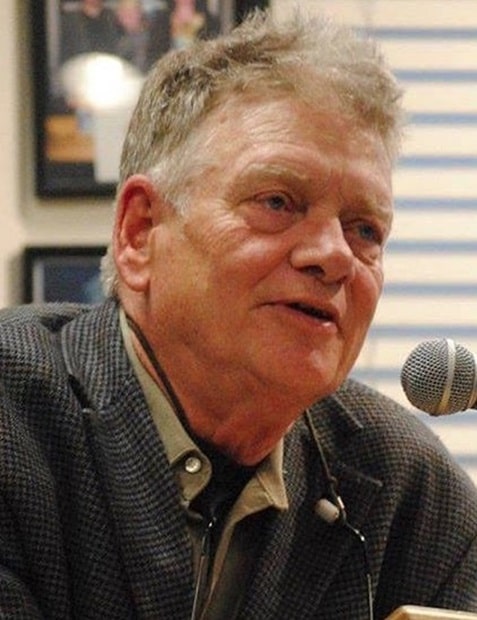 |
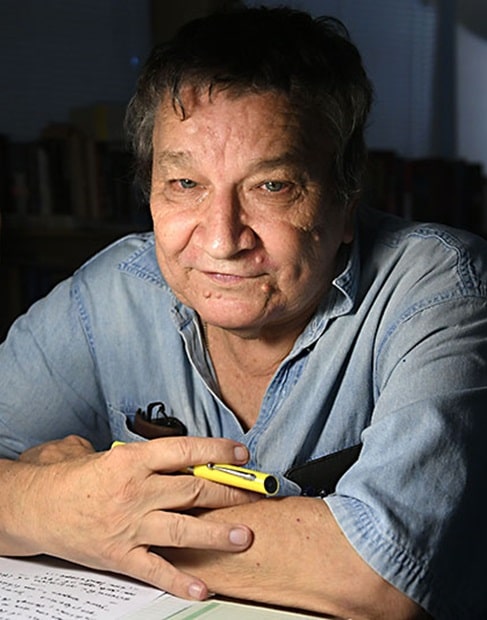 |
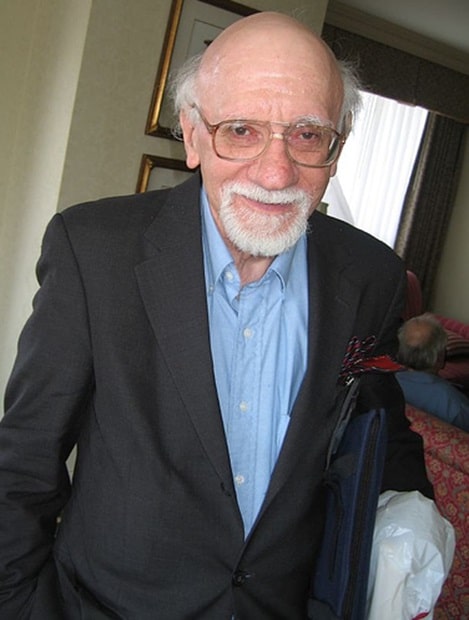 |
Terry Bisson, Howard Waldrop, and Tom Purdom
On the heels of Terry Bisson’s death I heard news that Howard Waldrop had died. And this morning I woke up to learn that Tom Purdom had also died. A profound 1-2 punch to the SF community, followed by a knockout. Bisson and Waldrop were two of the most original, indeed weirdest, SF writers; and if Purdom wasn’t as downright weird as those two he was as intriguing in his slightly more traditional fashion. All three writers wrote novels, but it’s fair to say they are all best known for their short fiction.
I never met Terry Bisson (we exchanged emails once, when I asked for permission to reprint one of his stories) and I only met Howard Waldrop briefly at a couple of conventions (a ConQuesT and a World Fantasy.) I also never met Tom Purdom in person, though we did correspond for a while back when he was writing his online autobiographical posts. So I can’t say I knew any of these men well, but all seemed, from a distance if you will, people eminently worth knowing. And if I couldn’t know them personally, I had to settle for knowing them via their fiction.
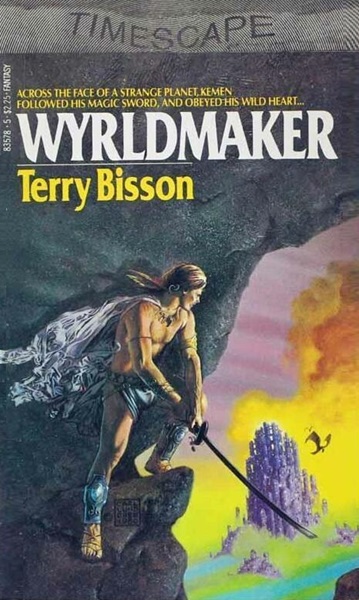 |
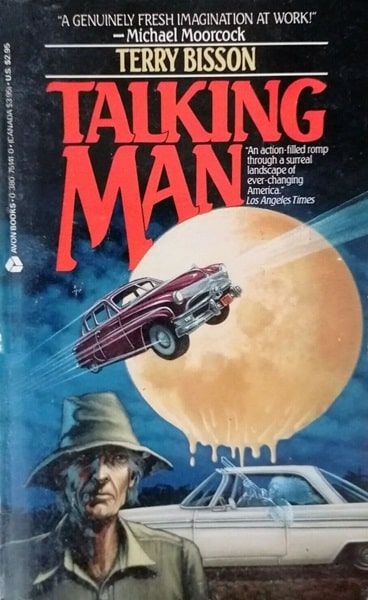 |
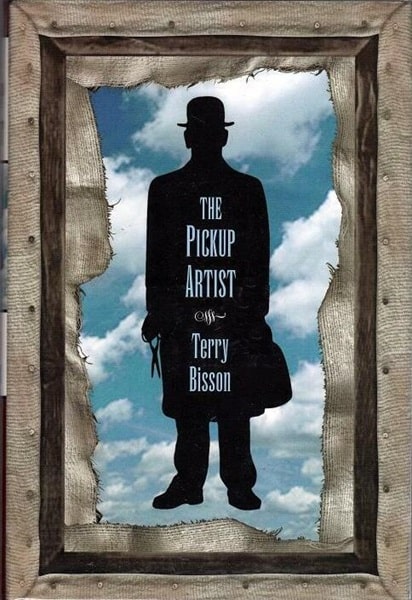 |
Wyrldmaker (Timescape/Pocket Books, July 1981), Talking Man (Avon, August 1987), and
The Pickup Artist (Tor, April 2001). Covers by Carl Lundgren, Jill Bauman, and David Gallo
Terry Bisson’s first novel, Wyrldmaker, came out in 1981, and by 1990 he’d published 3 more, and he’d gotten some notice, especially for Talking Man. But it seems that from that time forward the market decreed that his novels weren’t selling; and he turned largely to short fiction, as well as a fair amount of work for hire, some of this very good, such as his novelization of The Fifth Element. The Pickup Artist (2001) is an intriguingly strange work, perhaps not wholly successful but absolutely worth reading.
His novels still deserve attention — indeed, rediscovery. But his short fiction is remarkable. His second published story, “Bears Discover Fire,” won the Hugo and Nebula, and it’s an extraordinary work, a moving story of a man confronting his life, and his mother’s decline, amidst discovery of, well, bears and their discovery. He kept publishing outstanding short stories for rest of his life — “They’re Made Out of Meat” became famous, and it’s a strong story, but I particularly like his Wilson Wu stories, collected as Numbers Don’t Lie, and also stories like “macs,” “An Office Romance,” “The Old Rugged Cross,” and the goofily pulpy short novel Planet of Mystery.
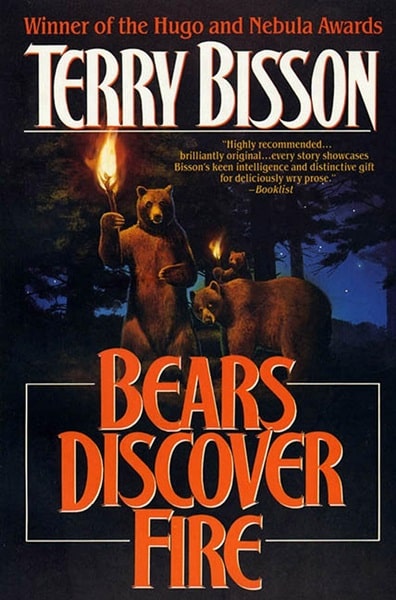 |
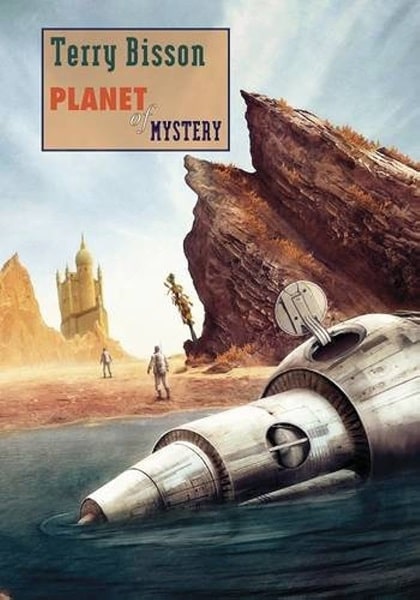 |
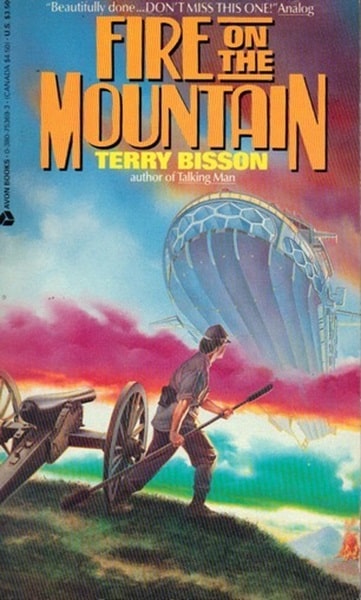 |
Bears Discover Fire (Orb, January 1995), Planet of Mystery (PS Publishing, December 2008), and
Fire on the Mountain (Avon, February 1990). Covers: Nick Jainschigg, Tomislav Tikulin, and Joseph DeVito
Terry Bisson was a man of the left — the far left (as his novel Fire on the Mountain makes abundantly clear) — and one of his great contributions to SF was his editorship of the Outspoken Writers series of chapbooks from PM Press — brief collections of short fiction and essays by major SF writers.
Howard Waldrop’s first story, “Lunchbox,” was famously submitted to Analog around the time of John W. Campbell, Jr.’s death, and it appeared in one of Ben Bova’s first issues, May 1972 — so Howard was either one of John Campbell’s very last discoveries, or Ben Bova’s first. He published a novel with fellow Texan Jake Saunders in 1974 (The Texas-Israeli War: 1999), but it was in 1976, with the appearance of “Mary Margaret Road Grader” and “Custer’s Last Jump” (with Steven Utley) that it became clear that he was someone special and someone unique.
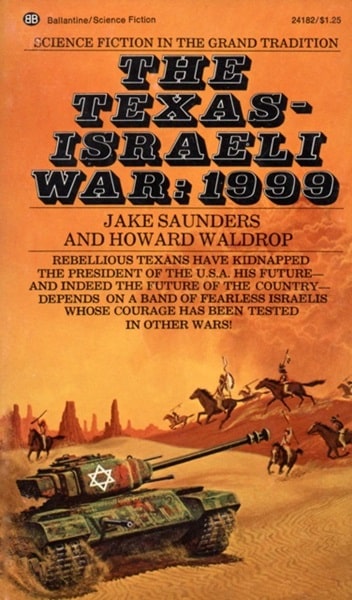 |
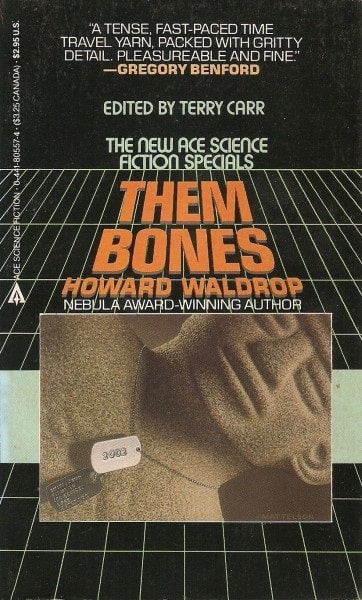 |
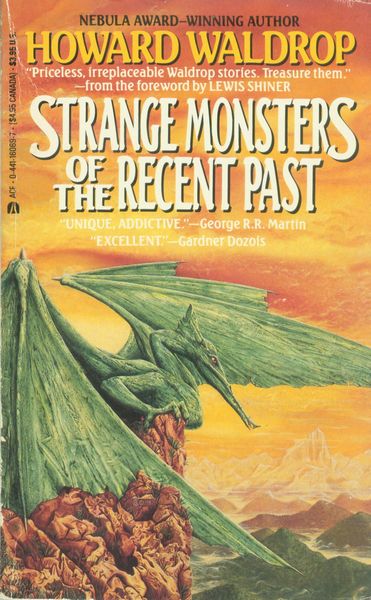 |
The Texas-Israeli War: 1999 (Ballantine Books, September 1974), Them Bones (Ace, November 1984), and
Strange Monsters of the Recent Past (Ace, July 1991). Covers: Dean Ellis, Marvin Mattleson, and Alan M. Clark
He only published one solo novel, Them Bones (1984), but he continued publishing short fiction, and it was always essential reading, completely offbeat, simply absorbing in its fusion of Avram Davidsonish “unhistory” with slant pop culture references and a great deal of warmth and sympathy for his outsider characters. I loved stories like “All About Strange Monsters of the Recent Past,” “A Dozen Tough Jobs,” “The Ugly Chickens,” “Fin de Cyclé,” “Heart of Whitenesse,” and “Ninieslando.” I was extremely honored to reprint “The King of Where-I-Go” and “The Dead Sea-Bottom Scrolls” in my anthologies.
One delight of my convention experiences was to participate in presenting a sort of “radio play” version of Howard’s “Major Spacer in the 21st Century” at Archon in 2017.
Howard’s loss truly leaves a gaping hole. There was simply no writer like him.
Tom Purdom had a long career in SF, but it had a curious shape. He published his first stories in 1957, and averaged about a story a year until 1973, and also published five shortish novels. Then for about the same period — until 1990 — he sold only two stories.
Then, prompted in part by fellow Philadelphian Gardner Dozois taking over the editorship of Asimov’s, he returned to short story writing, publishing over 40 more stories, the latest just last year. One of his autobiographical essays explains this hiatus, and also reveals that he was doing a lot of other writing, including serving as a music critic.
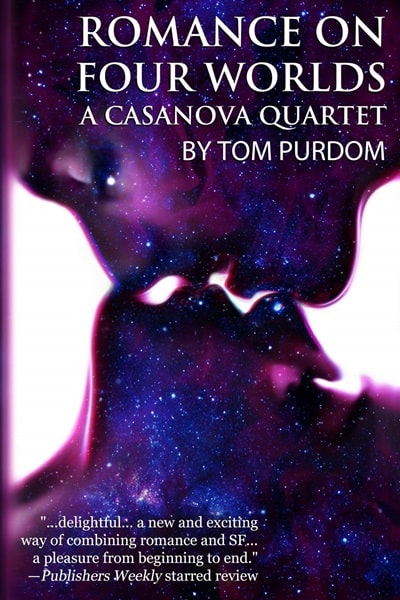 |
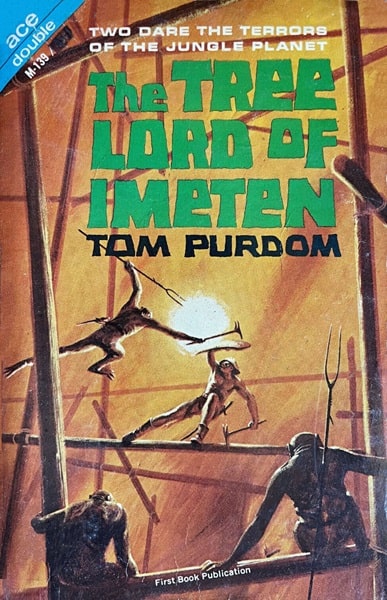 |
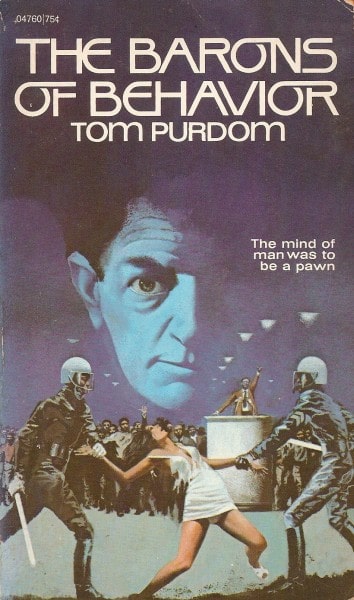 |
Romance on Four Worlds: A Casanova Quartet (Fantastic Books, April 2015), The Tree Lord of Imeten (Ace,
February 1966), and The Barons of Behavior (Ace, 1972). Covers: Ross Field, John Schoenherr, and C. A. M. Thole
It was those Asimov’s stories that brought him to my attention, particularly with “Chamber Story,” from 1992. He kept doing excellent work — highlights include a series of stories based on Casanova (eventually collected as Romance on Four Worlds), “Cider,” “The Path of the Transgressor,” “Haggle Chips,” “Golva’s Ascent,” and three stories I had the honor to reprint: “Palace Resolution,” “Bank Run,” and “A Stranger from a Foreign Ship.”
Naturally I then searched out his novels. The first three were halves of Ace Doubles: I Want the Stars, The Tree Lord of Imeten, and Five Against Arlane, followed by Reduction in Arms and The Barons of Behavior. These are all enjoyable, though not spectacular. Interestingly, a couple of his late stories were sequels to The Tree Lord of Imeten. His early short fiction shouldn’t be ignored either, notably “Greenplace” and “Toys.”
It truly is a blow to lose three such special writers in less than a week. Let us all remember their work. For my part, I have written about all three at my blog.
Terry Bisson
Howard Waldrop
Tom Purdom
Some Short Fiction
Two Novels: Reduction in Arms and The Barons of Behavior
Five Against Arlane
I Want the Stars
The Tree Lord of Imeten
Rich Horton’s last article for us was No More Stories — The Capstone to Joanna Russ’s Alyx Sequence: “The Second Inquisition.” His website is Strange at Ecbatan. Rich has written over 200 articles for Black Gate, see them all here.
☹️ May they whirl among the stars, and find even greater delight in examining the details of reality and imagination than they did in life.
Thank you for the recommendation of particular of their works.
I’m not sure when I started reading Waldrop’s short stories, probably at the end of the ’80s when I was trying to teach myself to write but I’d seen his name before on “The Texas-Israeli War: 1999” and that stuck in my head. In my mind, a genius!
[…] GONE BUT NOT FORGOTTEN. Rich Horton sadly reports that “Bad Things Come in Threes: Terry Bisson (February 12, 1942 – January 10, 2024), Howard Waldrop … in an obituary notice for Black […]
I have been fortunate to know all 3 of our departed folks. Mr. Bisson taught at the New School in Manhattan in the 1990s, and I took a writing class (14 weeks, $400) with him. Mr. Waldrop was a regular at Readercon, and I never missed his Sat/Sun midnight reading. Mr. Purdom wrote a wonderful series of essays about his writing career (“When I Was Writing”) for the New York Review of Science Fiction while I was helping to edit the magazine. So this winter has been remarkably sad for me.
And as an aside, for those who may not know Mr. Waldrop’s amazing short fiction, they may be familiar with one work that his “A Dozen Tough Jobs” inspired, the movie Oh Brother, Where Art Thou?, in which he receives a nod from the Coen brothers in the form of minor villain Vernon T. Waldrip.